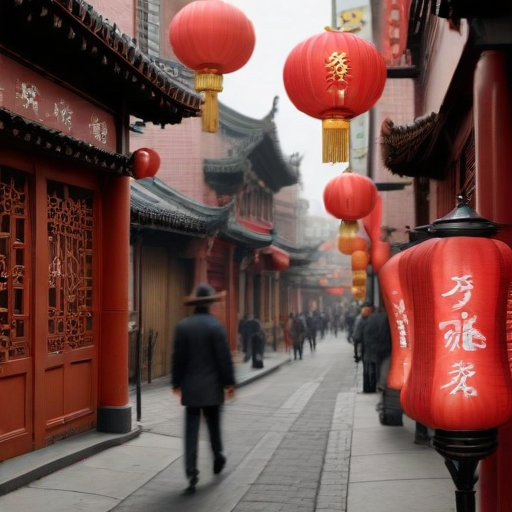In the new Hulu series “Interior Chinatown,” Jimmy O. Yang finds a personal connection to his character, Willis Wu, as he reflects on his own beginnings in the entertainment industry. Yang’s first role was that of “Chinese Teenager #1,” highlighting the irony that makes his portrayal of Willis—a struggling Chinatown waiter drawn into a mystery of his brother’s disappearance—so poignant.
The show, based on Charles Yu’s National Book Award-winning novel, is a unique blend of comedy and drama, presenting a “show within a show” format. Yang, alongside co-stars Chloe Bennet and Ronny Chieng, depicts characters who serve as extras in a police series called “Black and White.” These characters often go unnoticed until the layers of Hollywood artifice are stripped away, revealing the vibrant realities of life in Chinatown.
In this meta-narrative, Yang’s character cleverly uses stereotypes to navigate both his roles as a background figure and as a tech support person and delivery driver within the procedural. Yang emphasizes the struggle of being pigeonholed into one-dimensional roles and highlights the importance of breaking free from these stereotypes. He describes his role as a way to creatively challenge expectations.
Chieng’s character, Fatty Choi, symbolizes resistance against societal pressures, choosing to remain firmly rooted in their Chinatown community instead of catering to a predominantly white narrative. He believes in the importance of recognizing the value of marginalized voices in society.
Bennet plays Detective Lana Lee, a biracial cop who embodies the complexities of identity as she straddles two worlds. Her character faces daily challenges of being seen as both an insider and an outsider, bringing a relatable depth to her portrayal that resonates with Bennet’s own experiences in Hollywood. She sees her character’s struggle and inner conflict as a powerful reflection of her own life, bringing authenticity to the story.
Through satire, “Interior Chinatown” sheds light on the often-overlooked lives of people behind the scenes. Chieng expresses hope that by revealing these narratives, audiences will develop a greater curiosity about the untold stories of those who typically exist in the background.
Overall, “Interior Chinatown” serves as a testament to diversity and the importance of representation, encouraging viewers to consider the rich histories and stories woven into every character, no matter how minor they may seem. This show not only entertains but also opens up meaningful conversations about identity and visibility in the entertainment industry, fostering a more inclusive understanding of the varied experiences of Asian American communities.
